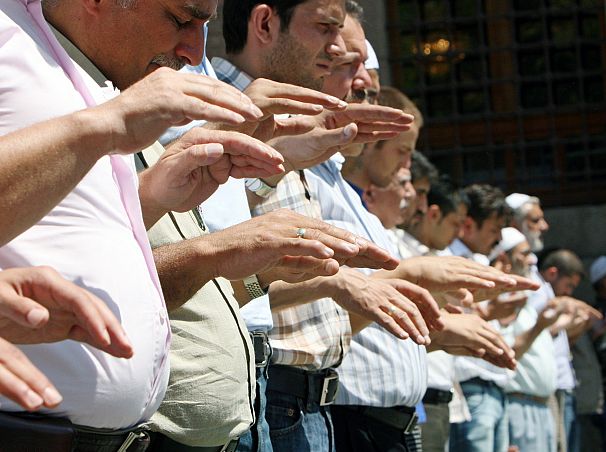Istanbul has already been warned it has less than 45 days of water left due to poor rainfall in the second half of last year.
As parts of Western Turkey battle against recent heavy rain and flooding, the country is facing its most severe drought in a decade.
 ADVERTISEMENT
ADVERTISEMENT
 ADVERTISEMENT
ADVERTISEMENT
Istanbul has been warned it has less than 45 days of water left due to poor rainfall in the second half of last year.
"Last year the level of water in dams in Istanbul was twice what it is now, so it wasn't that bad. Now we are in the second year and experiencing rougher droughts," Dr Akgün İlhan, a water management expert, told Euronews.
Ankara's mayor said earlier this month that the capital only had another 110 days’ worth of water left in dams and reservoirs.
Other cities across the country are also struggling with dams and reservoirs below 40 per cent full. Elsewhere farmers in wheat-producing areas fear their crop will fail.
"Since the late 1980s Turkey has faced drought periods," says Dr. İlhan. "It's every 4-7 years, which is the result of global climate change."
"However," she says, "what we face now is to a large extent a lack of adaptation or even maladaptation to climate change."
Whilst it's true that the country receives less precipitation, it also "makes inefficient use of the water falling on our cities."
The natural water cycle is already interrupted by climate change, but Dr. İlhan suggests its also affected by urban surfaces that are sealed with asphalt and concrete materials, "leaving very little green spaces where water can meet soil and fill groundwater resources."
"Throughout Turkey, the average public water loss is 43 per cent due to old and inefficient water infrastructure."
And it isn't just a question of lack of financing, as according to Dr. İlhan, "there is enough finance, but the political will is missing."
"For example," she says "last month the government made the director of the religious affairs organise 'pray for rain' ceremonies in every city in Turkey."
"But this is really useless. God is not responsible for climate change, it's humans that created it," she says, "and we should take responsibility for it."
"I am not against praying for rain, it is a ten-thousand-year-old pagan ritual, but we must ratify the Paris Agreement to tackle the climate change that created those droughts."
"But the government is not willing," she claims.
Dr. İlhan pleas that "we have to understand we have limited resources that are shrinking due to climate change and increasing population which is over 84 million."
"The most sustainable strategy now is to reduce water demand instead of increasing the water supply through building more dams and water transfer systems."
"One way we can do this is for the central government to obligate local authorities to reduce that 43 per cent water loss to a more acceptable level through legal instruments and economic incentives."
"But and at the same time," she says "local authorities can make rainwater reuse and rain harvesting technologies obligatory for new constructions in cities."











